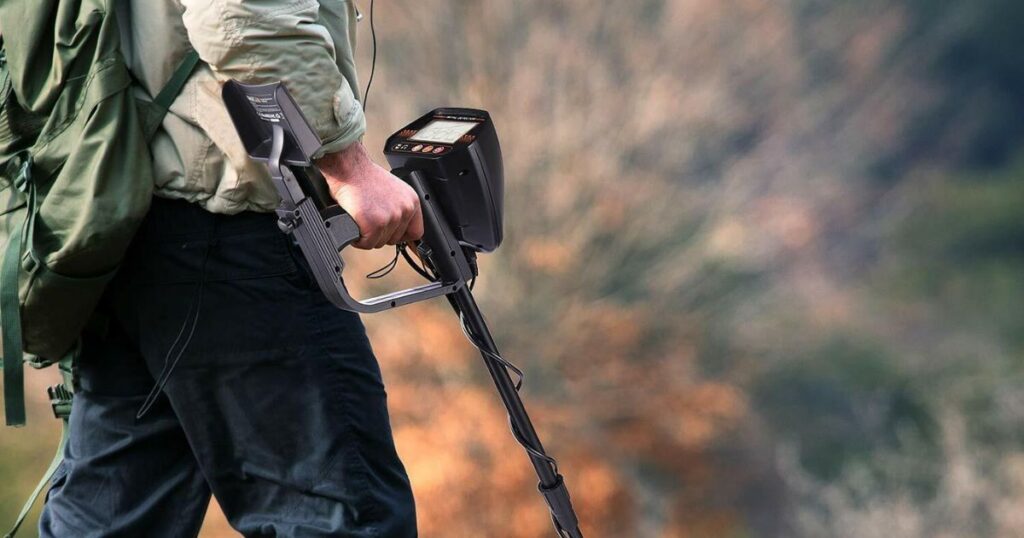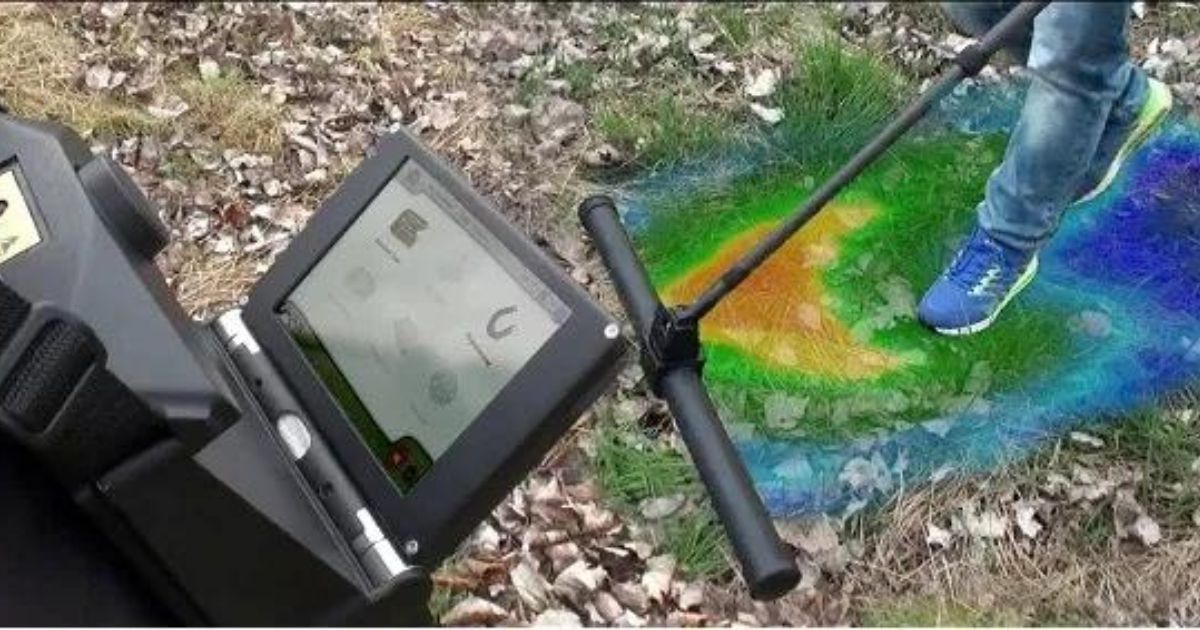A metal detector is a handheld or stationary device that uses electromagnetic fields to detect the presence of metal objects. It operates by emitting a magnetic field and sensing changes in that field caused by nearby metal. Commonly used for security screening or treasure hunting, metal detectors are equipped with a coil that generates signals when metal is detected, alerting the user through an audible sound or visual indicator.
Ever wondered if your trusty metal detector can uncover more than just buried treasures? Picture this you, equipped with your detector, exploring the unknown and stumbling upon mysterious materials. But here’s the twist will a metal detector pick up lead? It’s time to embark on a quest to unveil the secrets hidden beneath the surface. Grab your detector, join the adventure, and let’s unravel the mysteries together.
Yes, a metal detector can pick up lead. Lead is a metal, and metal detectors are designed to detect various metal types, including lead. When using a metal detector, be prepared to uncover not only precious treasures but also everyday items like lead objects, expanding the possibilities of your exploration.
The Lead Factor
In the realm of metal detection, understanding the nuances of different metals is crucial, and lead holds a unique place in this exploration. Lead, classified as a metal, is indeed detectable by metal detectors. This section delves into the specifics of lead as a metal, exploring its properties and shedding light on why metal detectors pick it up. From the characteristics that make lead stand out to the common everyday objects composed of this metal, we uncover the secrets behind the lead factor in metal detection.
As we unravel the mysteries of lead detection, it becomes clear that metal detectors not only enrich your quest for treasures but also expose you to the everyday presence of lead in unexpected places. From historical artifacts to modern items, the lead factor adds an intriguing dimension to your metal detecting endeavors, expanding the horizons of your exploration beyond the conventional notion of hidden treasures.
Lead as a Metal
Lead, a versatile and dense metal, has long held significance in various industries and everyday items. Belonging to the carbon group on the periodic table, lead boasts a distinctive bluish-gray hue. Its malleability and low melting point made it a favorite among ancient civilizations for crafting tools, pipes, and even coins. Despite its utility, the health hazards associated with lead exposure have led to a decline in its widespread use.
What sets lead apart in the realm of metal detection is its ability to absorb and attenuate both X-rays and gamma rays, making it challenging to detect through traditional methods. Metal detectors, with their electromagnetic capabilities, prove to be effective in uncovering lead objects buried beneath the surface. From lead artifacts with historical value to mundane items like pipes and weights, the metal detector becomes a key tool in revealing the hidden stories of lead.
Properties of Lead in Detection
In the realm of metal detection, lead possesses distinct properties that make it both intriguing and identifiable. Lead, a dense and malleable metal, tends to exhibit a strong response to electromagnetic fields emitted by metal detectors. This responsiveness is attributed to lead’s conductivity and the way it interacts with the detector’s magnetic field. As a result, metal detectors can effectively pick up lead signals, allowing enthusiasts and professionals alike to uncover a range of lead-based items, from historical artifacts to everyday objects.
Understanding the properties of lead in detection becomes crucial for enthusiasts seeking a diverse range of discoveries. The unique characteristics of lead contribute to the versatility of metal detectors, enabling users to distinguish it from other materials beneath the surface. So, the next time your metal detector beeps, it might not just be signaling a hidden treasure, but perhaps the intriguing presence of lead waiting to be unveiled.
Metal Detector’s Versatility

In the world of metal detectors, versatility is the key to unlocking a realm of unexpected discoveries. These ingenious devices go beyond the pursuit of buried treasures, proving remarkably adept at uncovering everyday items, including the unassuming lead. Their adaptability extends to various environments, from sandy beaches to historic sites, making them indispensable tools for both hobbyists and professionals.
Whether you’re a treasure hunter or someone with a keen interest in history, the metal detector’s versatility opens doors to a multitude of possibilities. It’s not just about finding valuable artifacts but also about unearthing the stories and secrets hidden beneath the surface. So, gear up and embrace the versatility of your metal detector for an exploration journey that transcends the ordinary and brings to light the extraordinary.
Success Stories of Lead Discovery
Embarking on metal-detecting adventures often leads enthusiasts to unexpected discoveries, and success stories of lead detection abound. Treasure hunters, armed with their trusty metal detectors, have unearthed centuries-old lead artifacts with historical significance. From ancient seals to intricate lead-based jewelry, these findings offer a captivating glimpse into bygone eras.
In addition to historical treasures, success stories of lead discovery extend to more practical applications. Metal detectors have played a crucial role in locating lost lead objects, ranging from plumbing components to valuable tools. These success stories underscore the versatility of metal detectors beyond archaeological pursuits, demonstrating their utility in everyday scenarios. Whether revealing hidden historical gems or aiding in the retrieval of misplaced items, the success stories of lead discovery illuminate the diverse and fascinating aspects of metal detecting.
Practical Applications of Detecting Lead
Metal detectors, with their ability to detect lead, find practical applications in various fields. In industries such as construction and renovation, detecting lead materials becomes crucial for safety compliance. Metal detectors ensure that workers can identify lead-based components, minimizing the risk of exposure to harmful substances
Beyond safety and environmental concerns, metal detectors detecting lead are employed in archaeological endeavors. They aid in locating lead artifacts, offering valuable insights into historical periods. Moreover, in the realm of treasure hunting and hobbyist exploration, the capability to detect lead expands the range of discoveries, making metal detecting a versatile and engaging activity for enthusiasts seeking not only valuable metals but also a deeper understanding of the materials hidden beneath the surface.
Tips and Tricks for Lead Detection
When it comes to detecting lead with a metal detector, a few tips and tricks can significantly enhance your success. Firstly, understanding the unique properties of lead is key this metal often requires a slower sweep and closer proximity to the detector coil for accurate detection. Adjusting your detector’s sensitivity settings can also make a significant difference, as it allows you to fine-tune the device to better pick up the distinctive signals emitted by lead.
Additionally, be mindful of the surrounding environment. Lead objects can sometimes be buried alongside other materials, potentially affecting the signals received by the detector. Employing a systematic grid pattern while scanning an area can help ensure comprehensive coverage and increase the likelihood of detecting lead artifacts. Remember, patience is a virtue in metal detecting, especially when aiming to uncover the secrets of lead.
FAQ,S
Is lead detected by metal detector?
Yes, lead is detectable by a metal detector. Metal detectors are designed to pick up various types of metals, including lead, due to its metallic properties.
What metals Cannot be detected by a metal detector?
Non-ferrous metals, such as aluminum, brass, and copper, are typically more challenging for standard metal detectors to detect. Additionally, certain non-metallic materials like plastic, glass, and rubber are generally invisible to metal detectors.
Can you find lead bullets with a metal detector?
Yes, you can find lead bullets with a metal detector. Metal detectors are sensitive to various metals, including lead, and can detect objects made of this material.
Conclusion
The world of metal detection holds endless possibilities, whether you’re seeking buried treasures or uncovering the presence of lead. The journey into this hobby is not just about the thrill of discovery but also about understanding the nuances of metal detection. From the basics of how metal detectors operate to the specific properties of lead and its detectability, we’ve explored the essentials.
Remember, the effectiveness of your metal detector relies on your knowledge, patience, and strategic approach. As you embark on your next adventure, armed with tips and tricks, consider the broader impact of your exploration, respecting both the environment and legal guidelines. The beauty of metal detecting lies not only in the artifacts you uncover but also in the responsible and respectful pursuit of the past.











